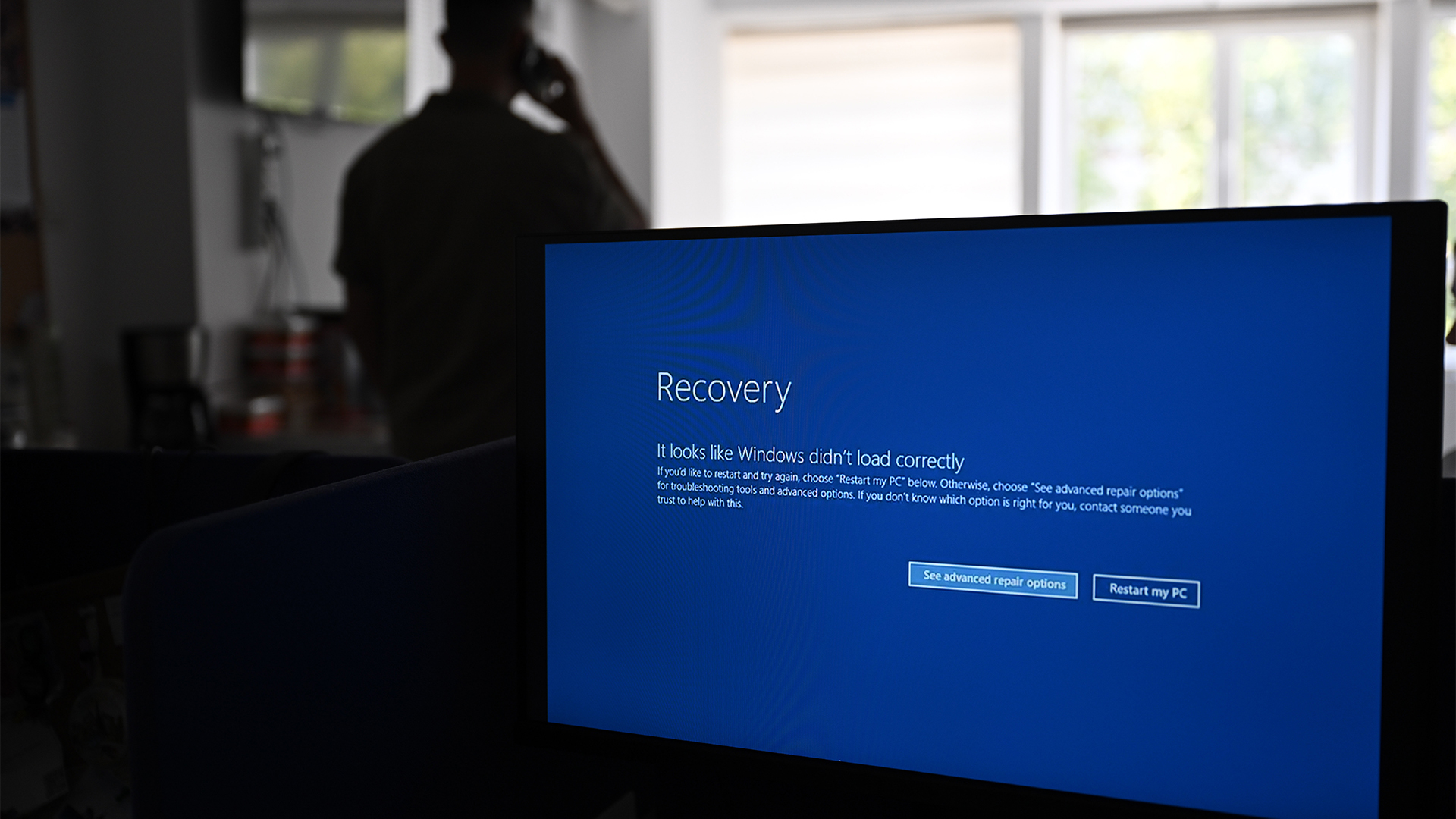Turning back the clock on hybrid work is a huge mistake – workers will make reflexive business leaders pay
Executives who renege on promises of flexibility and freedom could soon find it a challenge to retain top talent


Three years after the pandemic began, some companies are already looking to turn back the clock on hybrid work. Many employers, including a surprising number in Silicon Valley, have been keen to get workers back into the office, even while COVID-19 continued to range.
Google, for example, warned in early 2021 that hybrid work could harm its corporate culture, before performing a u-turn and approving the majority of requests to work remotely. Netflix boss Reed Hastings, similarly, once claimed he saw no positives in remote working.
Most recently, Elon Musk scrapped Twitter’s ‘work from anywhere’ policy and went so far as to install beds in its headquarters. Harking back to the past in this way and reneging on the promises of freedom and flexibility that came with remote work would be a mistake, with workers more empowered than ever to vote with their feet and seek the flexibility they crave elsewhere.
Losing out on remote working gains
Despite productivity climbing as much as 40% during the pandemic, when remote work was rife, these benefits might have gone over the heads of many. For some, any gains would have been simply absorbed by the economic hardship inflicted by COVID-19, while in more recent times these gains will have gone on to plug the financial woes caused by the cost of living crisis and surging inflation.
As anxieties grow, more traditionalist business leaders might even associate weakening financial performance within their companies with the rise of flexible working. This would, of course, be a false conclusion to draw. It might also be further exacerbated by leaders who find it hard to adapt and want to reflexively return to an age when things were far more straightforward.
Now, however, workers have had a taste of the golden apple, and forcing them to work from the office isn’t going to help anybody. Times have changed and it’s become part of the evolving fabric of work, much like upgrading from an ageing operating system to Windows 11.
The key difference is it’s a cultural change that’s still being worked through – with benefits less clear and harder to measure. Nevertheless, some businesses continue to push for more office-based work, using reasons like “collaboration”, despite a rampant expansion of digital collaboration tools during COVID-19.
Sign up today and you will receive a free copy of our Future Focus 2025 report - the leading guidance on AI, cybersecurity and other IT challenges as per 700+ senior executives
Why turning back the clock is a mistake
When the nine-to-five was the norm, employees will have accepted this given the lack of choice. Although employers might not have felt the productivity gains, employees certainly have, in addition to more flexibility and added benefits. By mandating a return to the office, you are asking workers to return to:
- Commuting, which will cost time and money
- Spending less time with their families
- Living in high-rent areas (presumably closer to the business)
- Foraging for overpriced sandwiches at lunch rather than having access to a full kitchen
Workers will be more empowered than ever now to vote with their feet, should their organisation withdraw the benefit. Indeed, 27% of male and 35% of female workers would search for a new role if their employer asked them to return to the office. This might particularly sting in the context of labour shortages.
With desperation in the air, could rowing back on remote work also be some kind of show of strength for investors? Shares in Google, for example, went up by 4% in the wake of news it took the tough decision to let go 12,000 workers. Executives who wander into the territory of tweaking working arrangements should take heed of how much employees – including highly skilled workers – value their newfound flexibility. This trend, if left unchecked, could weaken the foundations of a company.
Collaborating to define the future of hybrid work
This return to the past, particularly in the tech industry, also coincides with mass layoffs, including at Amazon and Salesforce alongside Microsoft and other major names. For executives who favour the previous status quo, what's stopping them from exploiting the leverage they’ve gained given the recent wave of redundancies – and an increasingly competitive job market – to enforce unpopular policies around hybrid work? For that reason, and others, it’s incidentally never been a better time for tech workers to unionise.
Instead of slashing remote work policies, businesses should be refining them – alongside workers and trade unions – to make sure they work for everyone. The International Labour Organisation (ILO), for example, recently found remote working helps prevent job losses and works to maintain employment levels. Flexible working also need regulating to mitigate any negative effects, as well as give workers a “right to disconnect”. There’s a higher danger of burnout and reduced productivity if employees don’t exercise this right. Plus, not all hybrid work policies are equal, with some organisations creating two or more tiers of workers who could be treated differently, be expected to perform different duties, or might even be paid differently.
RELATED RESOURCE

What 2023 will mean for the industry
What do most IT decision makers really think will be the important trends and challenges in the coming year?
This could also be a great time for companies to downsize their offices and make sizeable savings. Should more businesses embrace this cultural shift, it could transform the way cities and business hubs are structured. Some floors of office buildings will be retained, for instance, but others might be converted into retail space, or even much-needed housing. Businesses could grasp this opportunity to be a part of a reimagination of cities and office spaces – or they could risk being left behind.
Innovations have helped businesses enormously, and it's giving workers more freedom to work from anywhere. This isn’t a bad thing, and just because we used to work a certain way – and things seemed to work just fine on a surface level – that doesn’t mean we need to revert to those norms when times get tough. Perhaps, once we’ve come to appreciate the impact technology has made on our professional lives, employers might begin seriously entertaining even more radical ideas like the four-day week.
Zach Marzouk is a former ITPro, CloudPro, and ChannelPro staff writer, covering topics like security, privacy, worker rights, and startups, primarily in the Asia Pacific and the US regions. Zach joined ITPro in 2017 where he was introduced to the world of B2B technology as a junior staff writer, before he returned to Argentina in 2018, working in communications and as a copywriter. In 2021, he made his way back to ITPro as a staff writer during the pandemic, before joining the world of freelance in 2022.
-
 Infosys co-founder Narayana Murthy called for a 70 hour week last year — now he says that’s not enough
Infosys co-founder Narayana Murthy called for a 70 hour week last year — now he says that’s not enoughNews Murthy thinks longer hours akin to China’s '996' approach are the key to success
-
 Microsoft could be preparing for a crackdown on remote work
Microsoft could be preparing for a crackdown on remote workNews The tech giant is the latest to implement stricter policies around hybrid working without requiring a full five days in the office
-
 IT professionals aren’t budging on flexible work demands – and more than half say they’ll quit if employers don’t meet expectations
IT professionals aren’t budging on flexible work demands – and more than half say they’ll quit if employers don’t meet expectationsNews Analysis from Randstad shows 40% of UK-based IT pros have quit over a lack of flexible work options, while 31% of workers globally have done the same.
-
 'The tide seems to be turning towards office attendance': 64% of hybrid business leaders want staff back in the office – but many worry that enforcing RTO mandates will drive employees away
'The tide seems to be turning towards office attendance': 64% of hybrid business leaders want staff back in the office – but many worry that enforcing RTO mandates will drive employees awayAnalysis Many UK business leaders want their staff back in the office more frequently, but they’re scared to implement return to office (RTO) mandates in fear of worker revolts.
-
 Employees are dead set on flexible working arrangements – three quarters would turn down a role that didn't offer hybrid options as work-life balance becomes more important than pay
Employees are dead set on flexible working arrangements – three quarters would turn down a role that didn't offer hybrid options as work-life balance becomes more important than payNews New research shows workers are increasingly demanding flexible working arrangements from employers.
-
 Nearly half of tech workers are seeking new roles – declining employee benefits and reduced flexible working options have staff looking elsewhere
Nearly half of tech workers are seeking new roles – declining employee benefits and reduced flexible working options have staff looking elsewhereNews While salaries are rising for tech workers, other benefits are in decline, leading to a fall in job satisfaction
-
 It's been two weeks since CrowdStrike caused a global IT outage – what lessons should we learn?
It's been two weeks since CrowdStrike caused a global IT outage – what lessons should we learn?Opinion The incident on 19 July was possibly the biggest IT outage to date
-
 Game-changing data security in seconds
Game-changing data security in secondswhitepaper Lepide’s real-time in-browser demo


